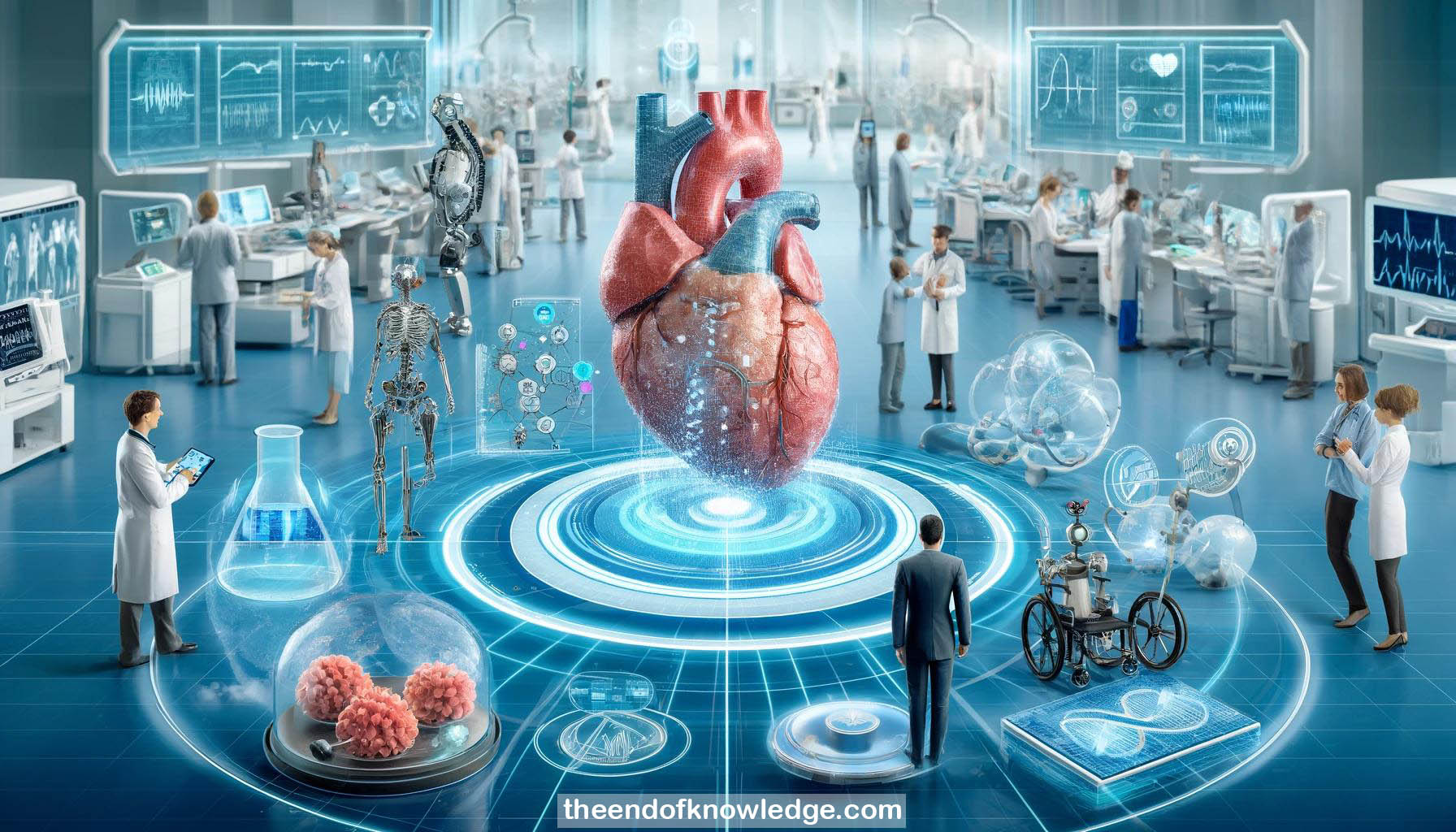 >
>
Concept Graph & Resume using Claude 3 Opus | Chat GPT4o | Llama 3:
Resume:
1.- AI for Good Initiative: Organized by the ITU and 40 UN organizations, this platform identifies and scales AI applications to advance the UN's sustainable development goals.
2.- Healthcare Data Explosion: Global data exceeds 64 zettabytes, with healthcare data growing annually at 36%, driven by personal devices and various health metrics.
3.- Digital Twins in Healthcare: Digital twins, AI-generated models of patient data, enable precision medicine by simulating individual health scenarios, significantly aiding diagnostics and treatment.
4.- AI in Cancer Treatment: Digital twins in oncology predict cancer progression and treatment responses by integrating individual and population data, revolutionizing personalized cancer care.
5.- IBM Watson's Diagnostic Power: Watson's natural language processing and deep learning capabilities allow it to diagnose complex diseases by analyzing vast amounts of clinical data and literature.
6.- AI in Sepsis Detection: AI algorithms, using structured and unstructured data, improve sepsis detection accuracy by 32% and reduce false positives by 20%, enhancing early diagnosis.
7.- Combating Antibiotic Resistance: AI tools, such as Google's TensorFlow, help field hospitals accurately interpret antibiotic efficacy using cell phone images, reducing improper antibiotic use.
8.- Generative Design in Drug Discovery: AI accelerates drug development by predicting protein folding and synthesis feasibility, enhancing the creation of novel treatments.
9.- AI in Medical Imaging: AI outperforms radiologists by detecting abnormalities with 91% accuracy, improving diagnostic precision and patient outcomes.
10.- AI-Augmented Robotics: AI-driven robotic limbs, responsive to muscle signals, enhance mobility for amputees without invasive brain implants, demonstrating significant rehabilitation advancements.
11.- Challenges of Data Silos: Healthcare data often exists in isolated silos, making it difficult for providers to access and interpret, hindering the effective use of AI.
12.- Economic Potential of AI in Healthcare: The global AI market is valued at $137 billion, growing annually by 40%, with healthcare spending representing 20% of economies, indicating ample financial resources.
13.- Reducing Healthcare Costs: AI optimizes supply chain management, population health, and reimbursement processes, significantly reducing operational inefficiencies and costs.
14.- Ethical and Regulatory Needs: Effective AI implementation in healthcare requires robust regulatory frameworks, standardized practices, and transparent, accountable systems to prevent misuse.
15.- Importance of Proper Training: Continuous education for healthcare professionals on AI tools is crucial, as they need to integrate these technologies without being overburdened.
16.- Privacy and Security Concerns: The use of AI in healthcare raises significant privacy and data security issues, necessitating stringent measures to protect patient information.
17.- Governance Frameworks: Establishing governance policies for AI in healthcare can prevent biases, ensure proper algorithm functioning, and mitigate potential legal liabilities.
18.- AI's Role in Drug Prescription: AI can significantly reduce the 30% error rate in drug prescriptions, ensuring patients receive the correct medication promptly and with fewer side effects.
19.- Combining Western and Eastern Medicine: AI can bridge the gap between Western and traditional Eastern medicines by validating and integrating effective natural treatments into mainstream healthcare.
20.- Space and Rural Healthcare Applications: AI holds promise for autonomous healthcare delivery in remote or resource-limited settings, where traditional medical expertise is scarce.
21.- Regulatory Delays and AI: Regulatory bodies lag behind AI advancements, slowing down the widespread adoption and potential benefits of AI in healthcare.
22.- Standardization and AI Development: Uniform standards for AI in healthcare are necessary to ensure consistency, reliability, and safety across different applications and regions.
23.- AI in Predictive Medicine: Advanced AI models predict individual responses to treatments, enabling proactive and tailored healthcare interventions.
24.- AI and Imaging Data: AI's ability to analyze complex imaging data surpasses human capabilities, providing more accurate and earlier detection of diseases like cancer.
25.- AI and Patient Engagement: AI tools empower patients by providing personalized health insights and enabling proactive management of their health conditions.
26.- Investment in AI Technologies: Major corporations recognize AI's potential in healthcare, with 40% planning to invest in AI technologies to drive future innovations.
27.- AI in Population Health Management: AI identifies at-risk populations and tailors interventions to prevent disease progression and reduce hospital readmissions.
28.- AI Enhancing Clinical Workflows: By streamlining administrative tasks, AI allows healthcare professionals to focus more on patient care, improving overall efficiency and satisfaction.
29.- AI's Impact on Global Health: AI's capabilities in diagnostics, treatment planning, and operational efficiencies have the potential to significantly improve global health outcomes.
30.- Future Prospects of AI in Healthcare: As AI technologies continue to evolve, their integration into everyday healthcare practices will transform the industry, offering unprecedented levels of care and efficiency.
Knowledge Vault built byDavid Vivancos 2024